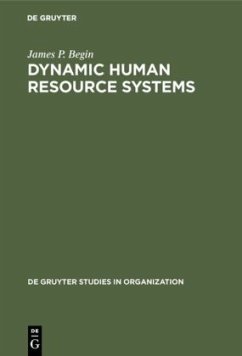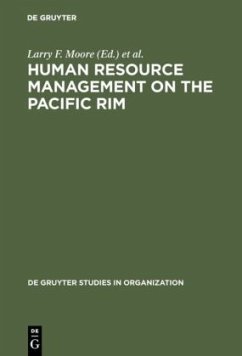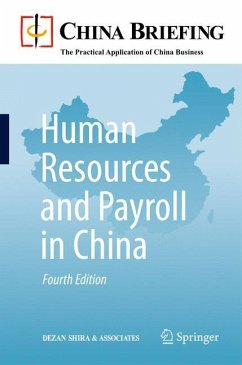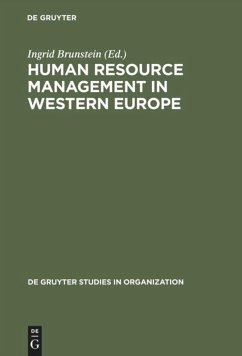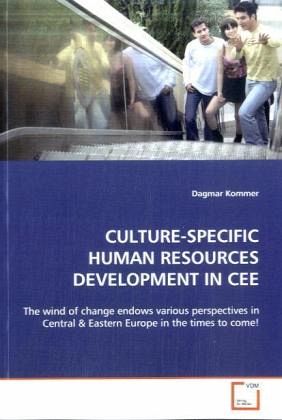
CULTURE-SPECIFIC HUMAN RESOURCES DEVELOPMENT IN CEE
The wind of change endows various perspectives in Central
Versandkostenfrei!
Versandfertig in 6-10 Tagen
32,99 €
inkl. MwSt.

PAYBACK Punkte
16 °P sammeln!
In consequence of the changes of 1989, the implementation of modern human resource development (HRD) highly increased in most of the Central and Eastern European countries. The variety of different processes among international and transnational companies as well as small- and mediumsized enterprises reflects the varying needs within human resource development in CEE. Together with these diverse processes, diverse opinions on the status of HRD in CEE emerged. The results of a qualitative research were compared and contrasted. Culture-specifics versus standardization - an issue of time and spac...
In consequence of the changes of 1989, the
implementation of modern human resource development
(HRD) highly increased in most of the Central and
Eastern European countries. The variety of different
processes among international and transnational
companies as well as small- and mediumsized
enterprises reflects the varying needs within human
resource development in CEE. Together with these
diverse processes, diverse opinions on the status of
HRD in CEE emerged. The results of a qualitative
research were compared and contrasted. Culture-
specifics versus standardization - an issue of time
and space? Meet one of the challenges of human
resource development in Central and Eastern Europe -
the wind of change endows various perspectives in
the times to come.
implementation of modern human resource development
(HRD) highly increased in most of the Central and
Eastern European countries. The variety of different
processes among international and transnational
companies as well as small- and mediumsized
enterprises reflects the varying needs within human
resource development in CEE. Together with these
diverse processes, diverse opinions on the status of
HRD in CEE emerged. The results of a qualitative
research were compared and contrasted. Culture-
specifics versus standardization - an issue of time
and space? Meet one of the challenges of human
resource development in Central and Eastern Europe -
the wind of change endows various perspectives in
the times to come.






